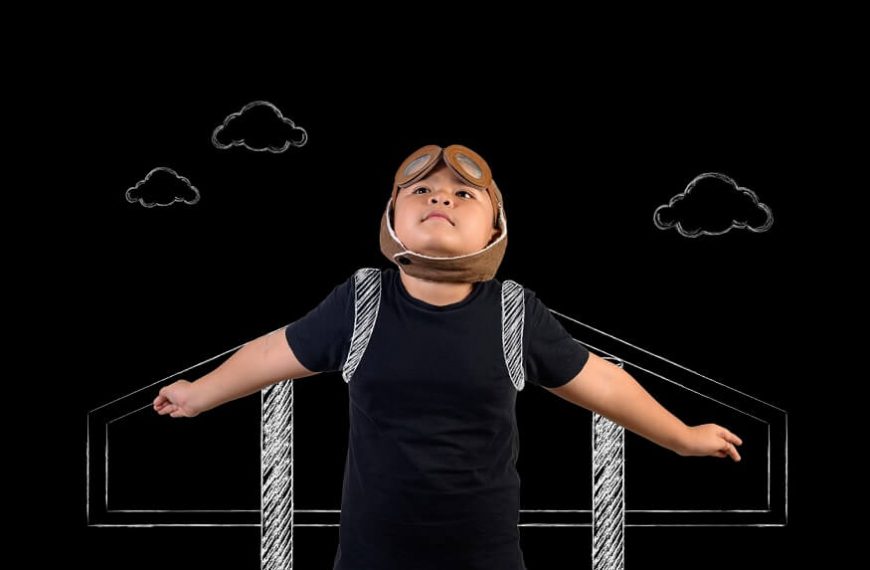Unlocking Children’s Potential: Metacognition in Education
Fostering efficient learning methods is of utmost importance in the field of education. The cognitive process known as metacognition, which involves thinking about one’s own thinking, is a crucial strategy that has attracted attention. The notion of metacognition is explored in depth in this article, along with how it can dramatically enhance children’s learning opportunities.
What is Metacognition?
Metacognition, also referred to as “thinking about thinking,” is the umbrella term for a variety of cognitive functions that allow people to keep track of, control, and evaluate their own mental processes. It entails being conscious of one’s learning aptitudes and areas for improvement, developing solutions to problems, and assessing the success of those solutions.
Components of Metacognition
Metacognition consists of several interconnected components that work harmoniously to enhance learning outcomes.
- Metacognitive Knowledge (What We Know About Our Own Learning):
- Metacognitive Control Strategies (Enhancing Learning Strategies):
- Metacognitive Self-Regulation (Monitoring and Adjusting):
Understanding one’s cognitive talents and shortcomings is a necessary part of this component. Children who have a strong understanding of metacognitive concepts are better able to identify when they are having difficulty with a particular topic or task.
People can actively control their learning processes using these tactics. A youngster may realise, for instance, that they have trouble comprehending challenging maths problems. With the aid of metacognitive control techniques, they may divide the issue into manageable chunks, track their progress, and modify their strategy as necessary.
This element focuses on the capacity to keep track of one’s learning progress and modify techniques as necessary. Children who engage in metacognitive self-regulation can recognize when their attention is wandering and take action to get it back.
How to Improve Metacognition in Children
- Fostering a Growth Mindset:
- Promoting Self-Questioning:
- Journaling:
Enhancing metacognition can be accomplished by teaching kids to see obstacles as chances for growth. They are more likely to participate in reflective thinking if they feel that their efforts will improve things.
Encourage kids to pose questions to themselves as they study. “Do I understand this concept?” is one example. or “What should be my approach towards this issue?” This behaviour promotes self-reflective metacognition.
It can be really advantageous to keep a learning journal. Kids can make notes about what they’ve learned, how they went about completing a task, and which approaches were most effective. Promoting metacognitive awareness is the goal of this practice.
Metacognitive Strategies: Enhancing Learning Experiences
- Predicting Outcomes:
- Monitoring Comprehension:
- Utilising Memory Techniques:
Encourage kids to make predictions about how a learning endeavour will turn out before they begin. As a result, they are able to activate their metacognitive knowledge and set goals for their learning process.
Teach kids to take a break from reading or studying every now and then to check their understanding. If students become aware that they are not understanding well, they can change their strategy by rereading or asking for clarification.
Describe mnemonic devices and memory tricks. This not only helps with memory but also emphasises how important it is to use efficient learning techniques.
Metacognition Activities: Nurturing Reflective Thinkers
- Think-alouds:
- Concept Mapping:
- Problem-Solving Discussions:
Encourage your students to express their ideas aloud during class. This enables individuals to become more conscious of how they approach difficulties and complete activities.
Encourage kids to connect many concepts in their study through the creation of visual representations. Their capacity to grasp the wider picture and spot knowledge gaps is improved by this practice.
Present current issues to kids and talk to them about possible solutions. Encourage them to discuss their plans and decisions out loud to encourage metacognitive evaluation.
The Role of Educators in Fostering Metacognition
In order to develop metacognitive abilities in youngsters, educators are crucial. Teachers can significantly improve the learning process by fostering an atmosphere that is encouraging and promotes self-awareness and introspection.
- Explicit Instruction:
- Modelling Metacognition:
The idea of metacognition can be directly introduced to pupils by teachers. The foundation for comprehending and applying these tactics is laid by outlining what it is and how it might help them.
By thinking aloud during lessons, teachers can serve as examples of metacognitive thinking. Students can be helped on their own metacognitive journeys by modelling effective problem-solving techniques and showing how to track development and modify solutions.
Metacognition’s Impact on Problem-Solving Skills
The substantial impact that metacognition has on problem-solving skills is one of the notable advantages of this phenomenon. Children who are skilled at keeping track of their own ideas and methods are better able to solve challenging situations.
- Analysing Problem Components:
- Flexibility in Thinking:
- Learning from Mistakes:
Children are encouraged to break difficulties down into smaller parts through metacognition. They are able to comprehend the structure of the issue and provide methodical remedies thanks to their analytical approach.
Children can consider several approaches to problem-solving thanks to metacognition, which encourages flexible thinking. This adaptability is essential for overcoming a variety of difficulties that may develop in both academic and practical contexts.
Children who have metacognitive awareness can pinpoint their mistakes when trying to solve an issue. They can learn from their errors and improve their approaches to problems in the future with the help of self-reflection.
At EuroKids, we are aware of how crucial metacognition is to the development of young minds. Metacognitive techniques are effortlessly included in the learning process using our instructional strategy. We provide kids the tools they need to take charge of their own education through engaging activities, introspective exercises, and individualised coaching.
Consider the enormous effects of metacognition as you set out on the path to improving your child’s education. You’re establishing the groundwork for a future characterised by constant growth and achievement by giving them the means to comprehend their own thoughts.
See how metacognition paves the road for a better tomorrow by learning about the EuroKids difference today.
















